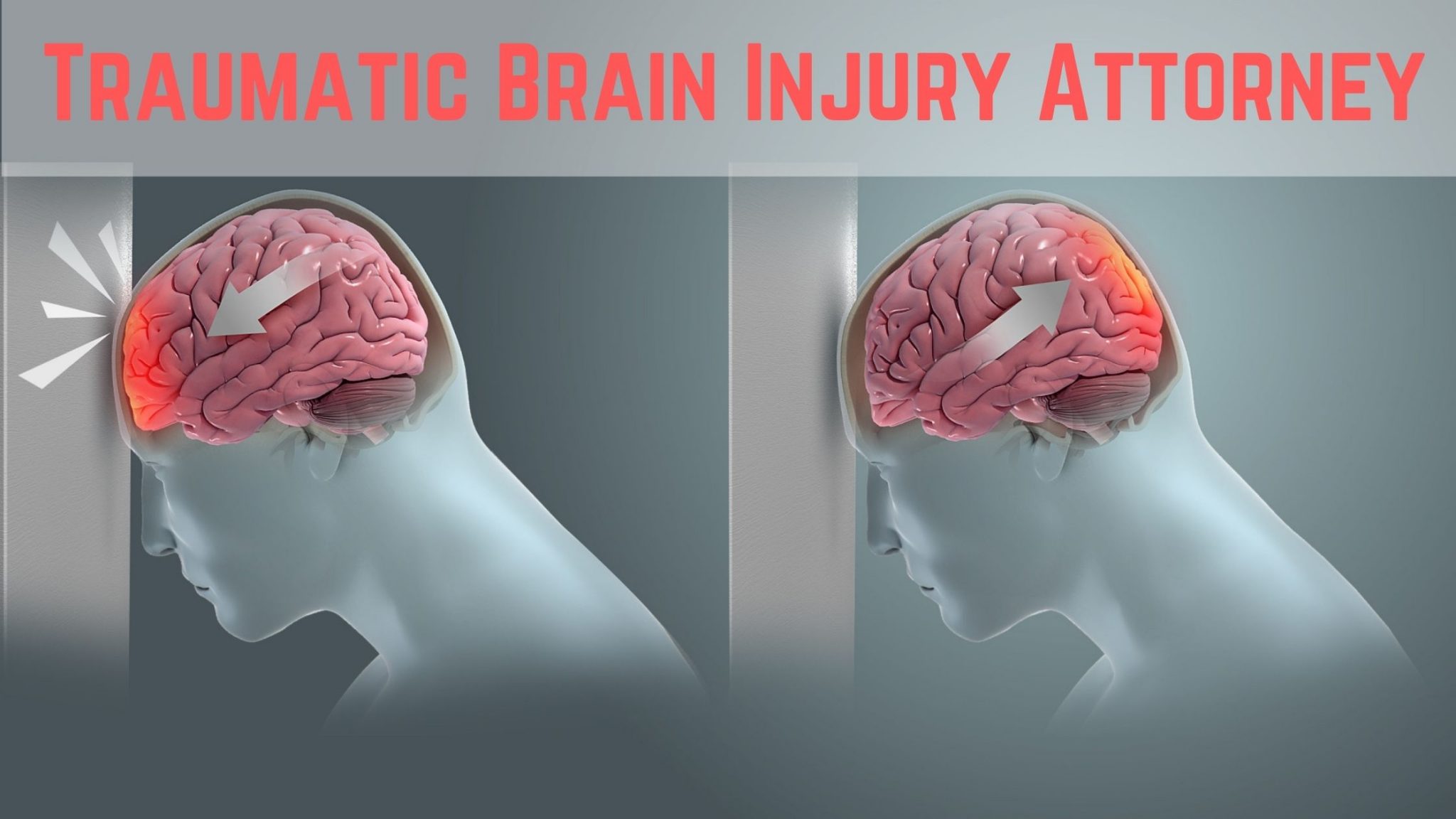Accident and injury lawyer for traumatic brain injury – Navigating the aftermath of a traumatic brain injury (TBI) can be an overwhelming and complex journey. Accident and injury lawyers specializing in TBI cases play a crucial role in ensuring victims receive the legal support, compensation, and justice they deserve.
From understanding legal rights to building a strong case, these lawyers are dedicated to advocating for the well-being of TBI survivors.
With a deep understanding of the legal complexities and medical nuances surrounding TBI, these lawyers provide personalized guidance and support throughout the legal process. They work tirelessly to maximize compensation for damages, including medical expenses, lost wages, and pain and suffering, while also advocating for long-term care and support services.
Introduction to Traumatic Brain Injury (TBI)
Traumatic brain injury (TBI) is a complex and potentially devastating condition that affects millions of people worldwide. It occurs when a sudden impact or force causes damage to the brain. TBI can range in severity from mild concussions to severe, life-threatening injuries.
The impact of TBI can be significant, affecting cognitive abilities, physical function, and emotional well-being. Individuals who have sustained a TBI may experience a wide range of symptoms, including memory loss, difficulty concentrating, headaches, dizziness, and mood changes.
Prevalence of TBI
TBI is a prevalent issue, affecting an estimated 1.7 million people in the United States each year. The most common causes of TBI include falls, motor vehicle accidents, sports injuries, and violence. Children and older adults are at an increased risk of sustaining a TBI.
Impact of TBI
The impact of TBI can be profound, both for the individual and their loved ones. The severity of the injury and the resulting symptoms can significantly impact a person’s ability to work, attend school, or participate in daily activities.
TBI can also have a significant financial impact, with costs associated with medical treatment, rehabilitation, and lost productivity. The long-term effects of TBI can be particularly challenging, as individuals may face ongoing challenges with cognitive function, physical abilities, and emotional well-being.
Legal Rights of TBI Victims

Traumatic brain injuries (TBIs) can have devastating consequences, not only for the victims but also for their families. The legal system provides a number of rights to TBI victims to help them obtain compensation for their injuries and losses.The legal framework for pursuing compensation for a TBI typically involves filing a personal injury lawsuit against the party or parties responsible for the injury.
This lawsuit can be filed by the victim or their legal representative. The lawsuit must allege that the defendant was negligent or otherwise at fault for causing the injury, and that the victim suffered damages as a result of the injury.
Damages Available to TBI Victims
In a TBI lawsuit, the victim may be able to recover a variety of damages, including:
- Medical expenses
- Lost wages
- Pain and suffering
- Emotional distress
- Loss of enjoyment of life
- Punitive damages
The amount of damages that a victim may be able to recover will vary depending on the severity of the injury, the victim’s age, and other factors.
Statute of Limitations
It is important to note that there is a statute of limitations for filing a TBI lawsuit. This means that there is a limited amount of time after the injury occurs within which the victim must file a lawsuit. The statute of limitations varies from state to state, so it is important to consult with an attorney to determine the applicable deadline.
Role of Accident and Injury Lawyers

Accident and injury lawyers play a vital role in helping victims of traumatic brain injuries (TBIs) navigate the legal process and obtain fair compensation for their damages.
These lawyers possess specialized expertise in TBI cases, including a deep understanding of the medical, legal, and financial complexities involved. They can provide invaluable assistance to victims in various ways:
Guiding Victims Through the Legal Process
The legal process can be overwhelming and confusing, especially for individuals who have suffered a traumatic brain injury. Accident and injury lawyers can provide guidance and support throughout the process, including:
- Explaining legal rights and options
- Filing claims and negotiating with insurance companies
- Preparing and presenting evidence in court
Maximizing Compensation
Victims of TBIs may be entitled to compensation for various damages, including medical expenses, lost wages, pain and suffering, and loss of earning capacity. Accident and injury lawyers can help victims maximize their compensation by:
- Evaluating the extent of damages
- Negotiating settlements with insurance companies
- Representing victims in court if necessary
Protecting Victims’ Rights
Accident and injury lawyers can help protect the rights of TBI victims by:
- Ensuring victims are treated fairly by insurance companies
- Holding negligent parties accountable
- Advocating for victims’ best interests
Key Considerations in TBI Cases
Determining the outcome of traumatic brain injury (TBI) cases hinges on several crucial factors. These include the severity of the injury, the presence of any pre-existing conditions, the availability of evidence, and the legal strategies employed by the lawyers involved.
TBI cases can be highly complex, requiring a comprehensive understanding of medical and legal principles. Lawyers representing TBI victims must possess a deep understanding of the medical aspects of the injury, as well as the legal implications and potential compensation available.
Factors Influencing Case Outcomes
- Severity of the Injury:The severity of the TBI, as determined by medical assessments, significantly influences the potential outcome of the case. More severe injuries typically result in higher compensation awards.
- Pre-existing Conditions:The presence of pre-existing conditions can impact the outcome of a TBI case. Pre-existing conditions may complicate the assessment of damages and affect the victim’s ability to recover.
- Availability of Evidence:The availability of strong evidence, such as medical records, witness statements, and expert testimony, is crucial in proving the extent of the injury and establishing liability.
- Legal Strategies:The legal strategies employed by the lawyers involved play a vital role in determining the outcome of TBI cases. Lawyers must effectively negotiate with insurance companies and present a compelling case in court to maximize the compensation awarded to their clients.
Proving Liability in TBI Cases: Accident And Injury Lawyer For Traumatic Brain Injury
Establishing liability in TBI cases involves demonstrating that the defendant’s negligence caused the plaintiff’s injury. To prove liability, the plaintiff must prove the following elements:
- Duty of care:The defendant owed a legal duty of care to the plaintiff, such as a driver’s duty to operate a vehicle safely.
- Breach of duty:The defendant breached their duty of care by acting or failing to act in a way that a reasonable person would not have done.
- Causation:The defendant’s breach of duty caused the plaintiff’s TBI.
- Damages:The plaintiff suffered damages as a result of the TBI, such as medical expenses, lost wages, and pain and suffering.
Gathering Evidence
To build a strong case, accident and injury lawyers gather evidence to support each element of liability. This evidence may include:
- Medical records:Documenting the plaintiff’s injuries and treatment.
- Accident reports:Describing the circumstances of the accident.
- Eyewitness statements:Providing accounts of what happened.
- Expert testimony:From medical professionals and accident reconstructionists to explain the plaintiff’s injuries and the defendant’s negligence.
Damages Recoverable in TBI Cases
Traumatic brain injuries (TBIs) can have a devastating impact on victims, leading to significant financial and non-financial losses. In such cases, victims may be entitled to recover damages to compensate for their injuries and losses.Damages in TBI cases can be broadly categorized into two types: economic and non-economic.
Economic damages are those that have a monetary value and can be calculated with reasonable certainty. These include:
Medical Expenses
- Hospitalization costs
- Doctor’s fees
- Rehabilitation costs
- Medication expenses
Lost Income
- Wages or salary lost due to the injury
- Loss of earning capacity due to permanent disability
Other Economic Losses
- Property damage
- Loss of household services
- Transportation costs
Non-economic damages, on the other hand, are those that do not have a readily ascertainable monetary value and are intended to compensate for the victim’s pain and suffering, emotional distress, and loss of enjoyment of life. These include:
Pain and Suffering
- Physical pain
- Emotional distress
- Mental anguish
Loss of Enjoyment of Life
- Inability to participate in activities once enjoyed
- Loss of relationships
- Loss of hobbies
Loss of Consortium, Accident and injury lawyer for traumatic brain injury
- Loss of companionship, support, and affection from a spouse or family member
The amount of damages awarded in a TBI case will vary depending on the severity of the injury, the victim’s age, occupation, and other factors. It is important to consult with an experienced accident and injury lawyer to discuss the potential damages that may be recoverable in your case.
Negotiating and Settling TBI Cases
Negotiating and settling TBI cases is a complex process that requires careful consideration and a thorough understanding of the law. The process typically involves the following steps:
Initial demand letter
The injured party’s attorney sends a demand letter to the at-fault party’s insurance company, outlining the injuries sustained and the damages being claimed.
Insurance company response
The insurance company will review the demand letter and respond with an offer to settle or a denial of the claim.
Negotiations
If the insurance company denies the claim or makes an unacceptable offer, negotiations will begin. These negotiations may involve multiple rounds of offers and counteroffers.
Settlement agreement
If the parties can reach an agreement, a settlement agreement will be drafted and signed. This agreement will typically include a lump sum payment to the injured party in exchange for a release of all claims against the at-fault party.When evaluating settlement offers, the following factors should be considered:
Severity of the injuries
The more severe the injuries, the higher the settlement value.
Liability
The strength of the case against the at-fault party will also affect the settlement value.
Insurance coverage
The amount of insurance coverage available to the at-fault party will limit the amount of the settlement.
Future expenses
The settlement should take into account the injured party’s future medical expenses, lost wages, and other expenses.
Tax implications
The injured party should consider the tax implications of any settlement.It is important to note that settling a TBI case is not always the best option. In some cases, it may be better to go to trial. This is a decision that should be made in consultation with an experienced attorney.
Trial Considerations in TBI Cases

In TBI cases, the decision of whether to proceed to trial is complex and should be carefully considered. Trial can provide the opportunity for victims to seek maximum compensation, but it also carries potential risks and uncertainties.
The trial process involves presenting evidence to a jury, who will then deliberate and determine liability and damages. Jury selection is a crucial step, as the jurors’ backgrounds, beliefs, and biases can significantly impact the outcome of the case.
Benefits of Going to Trial
- Potential for higher compensation:Trials allow for the possibility of recovering more significant damages than settlements, especially in cases involving severe or permanent injuries.
- Control over the process:Victims have greater control over the trial process and can present their case directly to the jury.
- Public exposure:Trials can raise awareness about TBI and the challenges faced by victims.
Risks of Going to Trial
- Uncertain outcome:The outcome of a trial is unpredictable, and there is always the risk of losing the case.
- Lengthy and expensive process:Trials can be time-consuming and costly, both for the victim and their legal team.
- Emotional toll:Trials can be emotionally draining for victims and their families.
Jury Selection
Jury selection is a critical part of the trial process. Lawyers from both sides question potential jurors to determine their biases, knowledge of TBI, and ability to be fair and impartial.
Factors that can influence jury selection include:
- Occupation
- Education
- Personal experiences with TBI
- Political views
By carefully selecting jurors, lawyers can increase the likelihood of a favorable outcome for their clients.
Long-Term Support for TBI Victims
Traumatic brain injury (TBI) can have a profound and lasting impact on an individual’s life. Beyond the immediate medical care, TBI victims often require ongoing support and resources to help them navigate the challenges of recovery and rehabilitation.
Rehabilitation and Community Involvement
Rehabilitation plays a crucial role in the recovery process for TBI victims. It involves a range of therapies and interventions designed to help individuals regain function, improve their quality of life, and reintegrate into their communities. Physical therapy, occupational therapy, and speech therapy are common forms of rehabilitation that address physical, cognitive, and communication impairments.
Community involvement is also essential for TBI victims, as it provides opportunities for social interaction, support, and a sense of purpose. Support groups, community centers, and volunteer organizations offer a platform for individuals to connect with others who understand their experiences and provide encouragement and guidance.
Last Recap
Choosing an experienced and compassionate accident and injury lawyer for your TBI case is essential. Their expertise and dedication can make a significant difference in the outcome of your case, ensuring you receive the justice and compensation you deserve. By partnering with a skilled legal advocate, TBI victims can focus on their recovery and healing, knowing that their legal rights are being diligently protected.
Query Resolution
What is the role of an accident and injury lawyer in a TBI case?
Accident and injury lawyers specializing in TBI cases provide legal guidance, represent victims in court, negotiate settlements, and advocate for their rights to compensation and support.
How can I find a qualified accident and injury lawyer for my TBI case?
Look for lawyers with experience handling TBI cases, a strong track record of success, and a reputation for compassion and dedication to their clients.
What types of damages can I recover in a TBI case?
Damages may include medical expenses, lost wages, pain and suffering, loss of earning capacity, and other economic and non-economic losses.